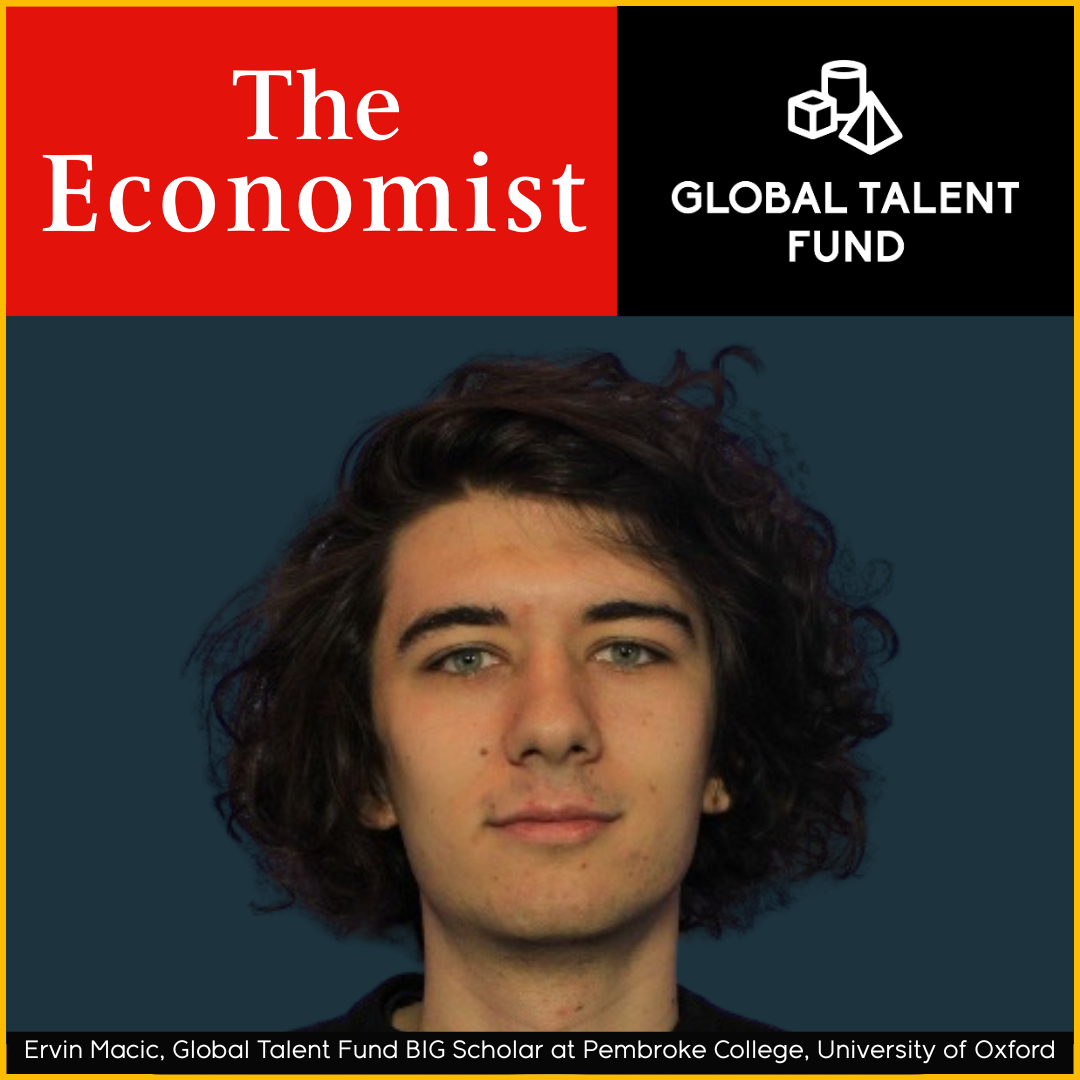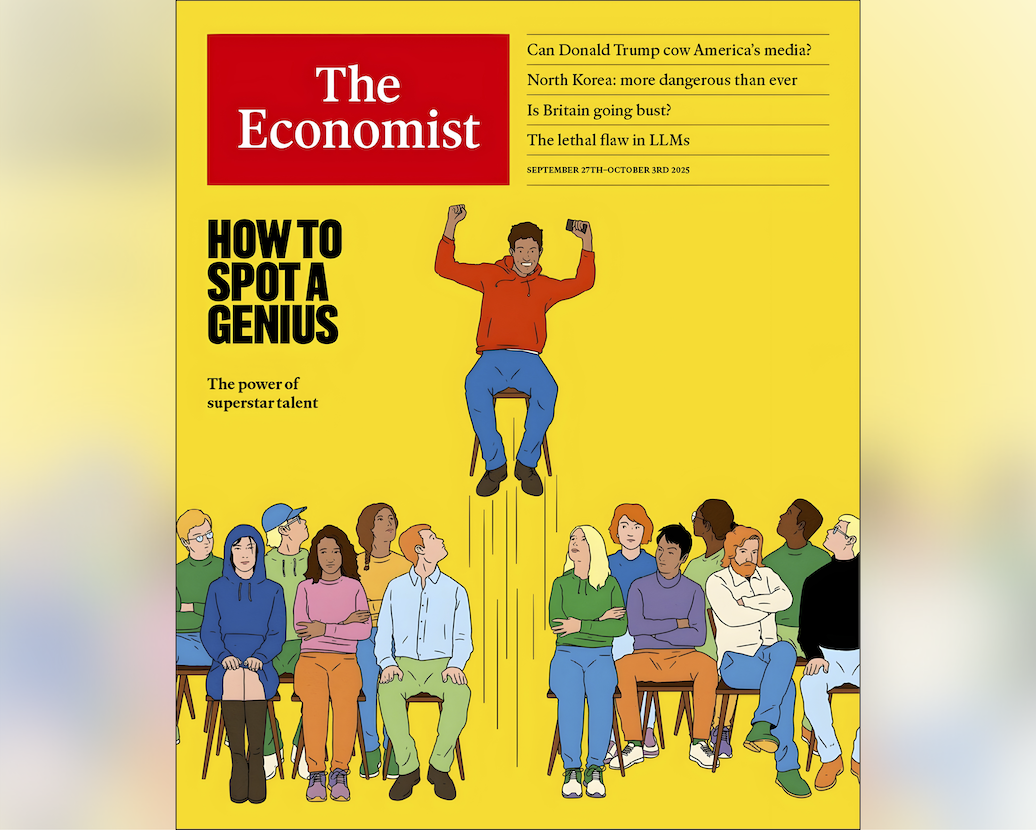“Individuals can shift the frontier for everyone,” as The Economist explains in their September 27 cover story (image from international edition cover), and a shorter "leader" article.
One pressing question is how to spot and support more “superstar” talent. High school STEM Olympiads are a great predictor, as the article explains using data from a new GTF report, Finding Young Einsteins. Yet many young medalists don’t attend top global universities and aren’t as productive in their careers. Why? Cost.
The article shares how Ervin Macić, from Sarajevo, medaled at the International Mathematical Olympiad and gained admission to University of Oxford – but “...its fees of £60,000 a year were five times his family’s income. So he went to the University of Sarajevo, where he sat programming exams on a decades-old IBM computer.”
As The Economist highlights, this is the reality of the "lost Einsteins” — brilliant minds whose potential never gets the chance to flourish simply because they were born in particular parts of the world.
Economists like Paul Novosad have shown that geography is one of the most significant barriers. 90% of the world’s young live in developing countries, yet Nobel Prizes overwhelmingly go to rich nations. Research by Alex Bell shows that children from America’s wealthiest 1% are 10x more likely to become inventors than those from below-median incomes.
Even when talent is visible — say at Olympiads — opportunity easily slips away. Our co-founders Ruchir Agarwal and Patrick Gaule found that medalists from poorer countries who perform as well as their peers from rich nations are only half as likely to earn a PhD at a top university. But change is possible, as Philippe Aghion has shown. Shifting a high-ability teen from a median- to high-income household dramatically raises the odds of future invention.

The Global Talent Fund works to close gaps like these. We identify extraordinary young people, remove financial barriers, and connect them to the ecosystems that let talent thrive. Ervin is now at Oxford as a GTF BIG Scholar, studying math and computer science. And other GTF Scholars are solving problems that stump even the sharpest undergraduates, as the article explains.
We support Olympiad programs in every part of the world, from the mountains of Zarzma, Georgia, as the article mentions, to central Africa, southeast Asia, and Latin America. And we’re searching well beyond Olympiads for more ways to identify future stars.
How to spot a genius? Start by broadening your search.


